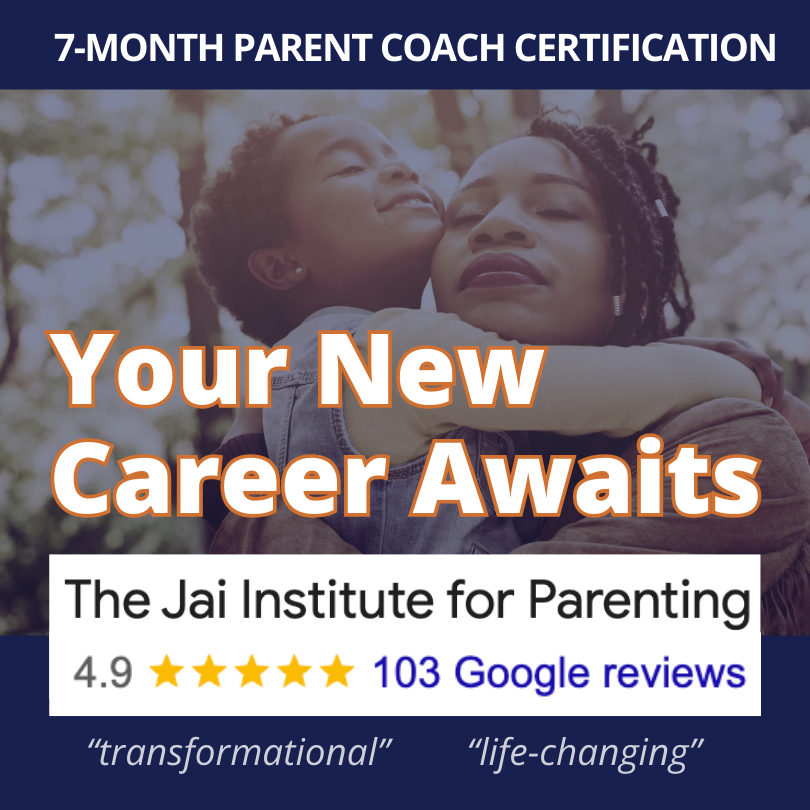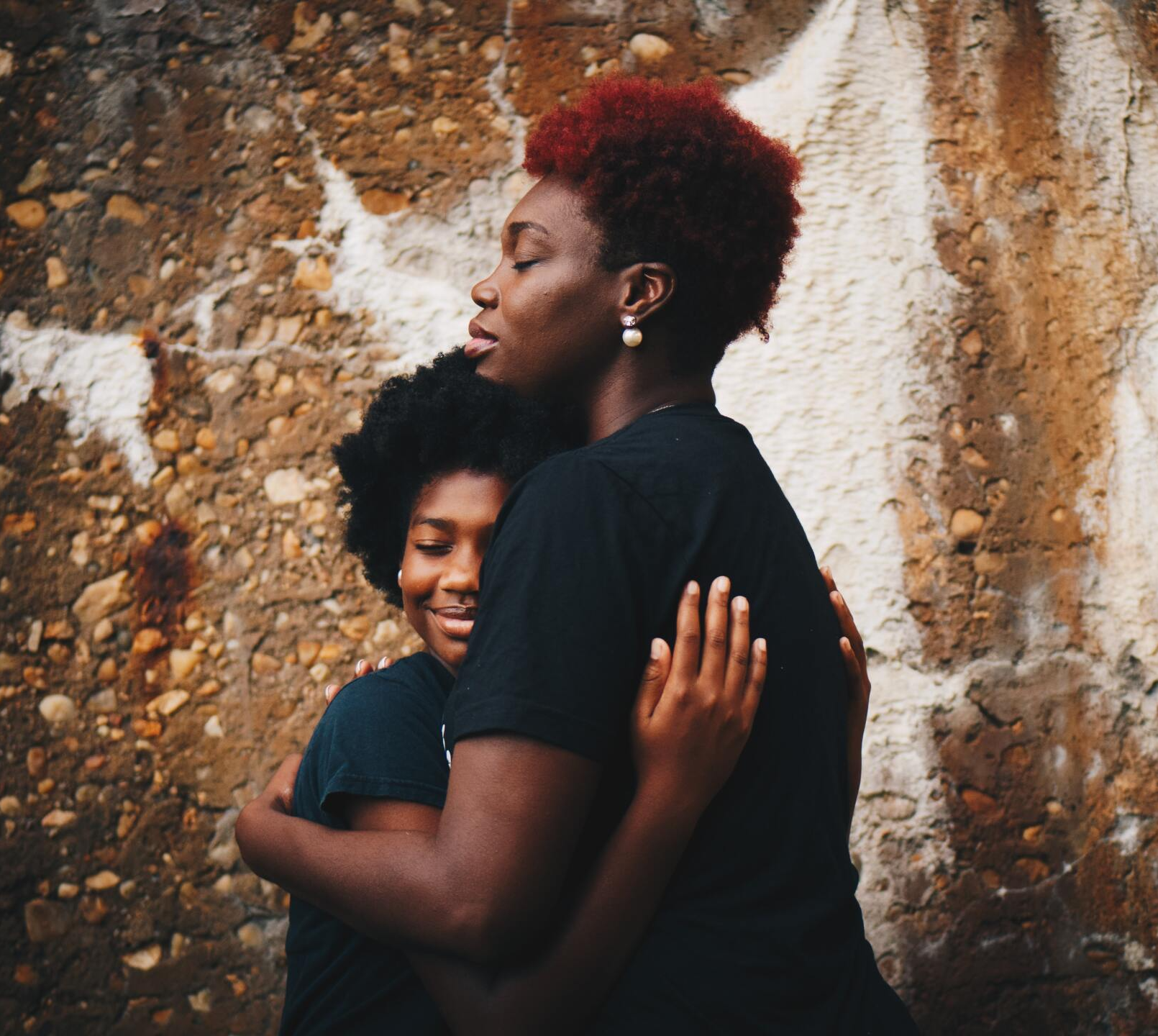Teaching Our Kids HOW to Use Emotional Intelligence

Emotions are powerful tools of discernment. Giving our children the ability to feel them will enrich their lives, and help them assert boundaries, and have deeper, more fulfilling relationships.
But they are terrible guides for our decisions and actions. Emotions are erratic, reactive, and fleeting.
Living a life guided by our emotions is a path to inconsistency, lack of follow-through, and an unwillingness to take risks or navigate long-term relationships. Acting from emotion can cause harm to our relationships and sabotage our goals. The goal is to
develop the skills of Emotional Intelligence and foster positive habits, decision-making skills, and persistence through challenging times.
Emotional intelligence is the ability to feel, express, and communicate our feelings and to resist the urge to allow them to rule the roost.
There’s a
trap here for Peaceful Parents… A myth. The idea, perpetuated by soundbites on social media, that our role is to keep our children in a positive mental state sets them up to miss out on the development of a vital life skill. Because the truth is that a successful life requires discipline, consistency, and follow-through. So in an interesting way, parenting with emotional intelligence means that we need to model and teach our children how to live life and make decisions beyond their emotions.
If we unintentionally start to guide our parenting choices by what will make our children feel good, instead of what is best for their long-term growth and potential, we (gasp… I’m going to say it!) coddle them.
We raise a generation of young adults who are ill-prepared to navigate a fundamental truth in life: It’s hard. We’re going to have to do things that we don’t like. We’re going to have to work with people who trigger us. We are going to fight with the people we love the most.
And if we teach our children that feeling negative emotions means that they should retreat to emotional safety, then their future stands on shaky ground. Adults need to build the capacity to transcend their emotions and make decisions that are rooted in their values and move them toward their goals. Emotions can be felt, but they can’t be feared.
Making good decisions doesn’t always feel good. In fact, it often doesn’t feel great.
When I was in my early 20s, I worked for a company in Boston that sponsored the Boston Marathon. Pretty much the whole company signed up to run the race, starting a training program in January (brrrr…) at 5:30 in the morning (ummm…). Let me cut to the chase: I did not kid myself. I signed up to hand out cups along the route.
But my friend Karen was a champ. She was at the meeting spot each morning. I asked, “How the heck?” she was being so disciplined. “Don’t you ever feel like sleeping in?”
“Of course,” she said. But then she said something that changed my life.
“If I only do things when I feel like it, I’ll never accomplish anything.” She told me she put her running shoes across the room next to her alarm and had a rule that she couldn’t turn the blaring alarm off until she had her shoes on. Once the shoes were on, she was going.
This is a lesson that our children need to learn. It’s the path to grit, follow-through, resilience, and success.
“The biggest flex is to train your mind to be stronger than your feelings.” ~A quote I saw on Twitter.
So how do we support our children to do this as
Peaceful Parents?
1. Develop YOUR ability to feel your feelings and decide from your intentions
This means, dear reader, that you get to become comfortable with your emotions and hone your ability to feel your feelings but not react to them. When we learn to just feel without taking any action, we will start to notice massive shifts in our lives.
I recently had a fight with my beloved. It was a bit of a doozy around a tender topic, and I was pretty furious. My mind started to spin in an imagined conversation full of righteousness and right-ness, and I reached for my phone. But I was heated. So I put it down and grabbed my journal. I wrote eight bullet points about my righteousness and right-ness. In my mind, I was going to use this for the conversation I would have with him. But I was still feeling the burn, so I went to the gym.
And on my way home, conversation still spinning in my head, I suddenly felt a deep sense of calm. In a moment, I understood his perspective. I wasn’t exactly right, after all. In fact, he was trying to protect me (a trigger for me as a fiercely independent woman), and I couldn’t see it through my rage.
What was going to be a disaster turned into an understanding.
(Just one from about eight million examples in my life. And I’d be lying if I said my emotions didn’t often get the best of me. I’m still learning too!)
2. Get comfortable with the idea that your kids aren’t always going to be comfortable
Instead of responding in ways to alleviate their emotional discomfort, grow your capacity to be with all of their emotions, resisting the urge to “fix them.” Their negative emotions are happening FOR them, not TO them. So give them the opportunity to let their feelings do their work.
Let’s say your child has a rough day at soccer practice. Or a rough month. And they want to quit. But your family has a value of participating in sports. And you’ve seen their joy in playing soccer in the past. You might say: “Let’s not quit when things are going badly. I’ll make you a deal: The next time you have an awesome practice or an awesome game, if you still want to quit, then let’s talk about it.
“And remember… In this family, we have a value of being on a team. So you can start to think about what sport you might try instead.”
Chances are high that the challenge will pass and that someday, the fact that your child didn’t quit is going to teach them that they can persevere through hard times to reach their goals.
3. Ground the lessons to build their identity
Identity is ultimately what guides our behavior. When we define ourselves as a “person who reads a book a month,” we are far more likely to read a book a month than if we say something like, “I’m going to try to read more.”
So when our children go through a challenging time and persevere, make good decisions, or follow through on their commitments even when it was hard to do so, we can embrace our role as their mentor and guide. Rather than telling them what we noticed or are proud of them for, we can ask questions like:
“What did you learn about yourself?”
“How will you handle this the next time something like this happens?”
“What lessons do you want to take away from this?”
Let them form their own conclusions, and then, of course, tell them what you noticed about their effort, response, or choice. I’m going to poke a pin in the balloon of the “don’t compliment your kids crowd” here, too.
There’s nothing more fulfilling to a child than YOU telling them that you’re proud of them when they’ve earned it.
The Most Vital Aspect of Emotional Intelligence… Is NOT Giving Too Much Power to Emotions
Remember, we’re parenting the child, but we’re raising the adult. Some of the most important characteristics adults can have are tenacity, persistence, resilience, grit, and integrity. It’s hard to develop these skills without being given the opportunity to do so.
Give your child the gift of preventing them from acting out from their emotional reactivity, and you’ll give them the keys to a better, more fulfilled, and satisfying life. As a parent, there is nothing more pride-inducing than seeing your child operate in the world as they mature, with a deep sense of responsibility, courage, and discernment. But this doesn’t happen magically. We must do our best to foster these qualities as we raise them. Which means we have to teach them to live beyond their feelings.
Important Note: For clarity’s sake, a child won’t have the
emotional regulation capacity necessary to start practicing these skills until they are 5-8 years old… so don’t set yourself up for failure by thinking this article applies to toddlers. You can bookmark it for later if you have young children.
Meet Your Author, Kiva Schuler
Jai Founder and CEO
Kiva’s passion for parenting stemmed from her own childhood experiences of neglect and trauma. Like many of her generation, she had a front row seat to witnessing what she did not want for her own children. And in many ways, Jai is the fulfillment of a promise that she made to herself when she was 16 years old… that when she had children of her own, she would learn to parent them with compassion, consistency and communication.
Kiva is a serial entrepreneur, and has been the marketer behind many transformational brands. Passionate about bringing authenticity and integrity to marketing and sales, she’s a sought after mentor, speaker and coach.
READ MORE:
Curious for more?














